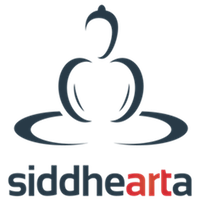A fundamental principle in the Buddha's teachings is that all beings have buddhanature. This buddhanature is the nature of our own mind, and though it is always fully evident it often goes unrecognized. Instead of embracing the path of becoming buddhas, or being buddha (which really means the path of waking up, or being awake), we find ourselves entangled in the mess of life with all of our problems. As the Buddha says:
Have a tathagata-garbha that is eternally unsullied,
If the tathagatagarbha, or buddhanature, is our fundamental nature of mind, why does it go unrecognized and why we do lack fulfillment?
There are four obscuring factors that keep us entangled in the afflictions: cognitive obscurations, emotional obscurations, habitual tendencies and karma. The work of the path of waking up and actualizing our buddhanature is to untie these ropes and release ourselves from bondage. The path of liberation is the path of freeing ourselves from these shackles and actualizing the resultant state, which is our innate buddhanature and natural awakened mind.
